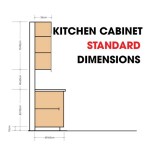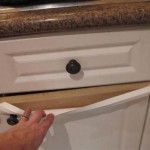Java Gel Stain for Kitchen Cabinets: A Comprehensive Guide
Java gel stain is a popular choice for refinishing kitchen cabinets due to its rich, dark color and ease of application. Unlike traditional liquid stains, gel stains are thicker and more viscous, allowing for precise application and minimal dripping. In this guide, we will delve into the essential aspects of using Java gel stain on kitchen cabinets, covering everything from preparation to application to finishing.
Step 1: Preparation
Thoroughly clean the kitchen cabinet surfaces with a degreaser to remove any dirt, grease, or residue. Repair any imperfections in the wood, such as dings or scratches, using wood filler. Sand the cabinets lightly using 120 grit sandpaper to create a smooth surface for the stain to adhere to.
Step 2: Application
Apply a thin, even coat of Java gel stain using a brush or sponge. Work in small sections, ensuring that the stain is evenly distributed. Avoid over-applying the stain, as this can lead to a blotchy finish. Allow the first coat to dry for 2-4 hours or as per the manufacturer's instructions.
Step 3: Second Coat
Once the first coat is dry, apply a second coat of Java gel stain in the same manner. This coat will help to deepen the color and even out any imperfections. Allow the second coat to dry for at least 12 hours.
Step 4: Finishing
After the second coat is completely dry, apply a protective finish to seal the stain and protect the cabinets from wear and tear. A polyurethane sealer is a common choice due to its durability and ability to enhance the color of the stain. Apply 2-3 thin coats of polyurethane, allowing each coat to dry thoroughly before applying the next.
Sand between each coat of polyurethane using 220 grit sandpaper to create a smooth, even surface. Remove any dust created from sanding and apply a final coat of polyurethane for a durable and long-lasting finish.
Advantages of Using Java Gel Stain
- Rich, dark color
- Easy to apply and control
- Dries quickly
- Enhances the natural beauty of wood
- Durable and long-lasting
Tips for Achieving a Professional Finish
- Use high-quality materials.
- Prepare the cabinets thoroughly.
- Apply thin, even coats of stain.
- Sand lightly between coats.
- Allow ample drying time.
- Protect the finished cabinets with polyurethane.
By following these steps and incorporating the tips provided, you can achieve a professional and stunning finish when refinishing your kitchen cabinets with Java gel stain. The rich, dark color and durability of the stain will transform your cabinets, creating a beautiful and inviting space.

Java Gel Kitchen Cabinets Black Stained Decor

Kitchen In Java Gel Stain And High Performance Top Coat General Finishes Design Center

Kitchen Makeover In Java Gel Stain General Finishes Design Center

Java Gel Stain Kitchen Transformation General Finishes Design Center

How To Paint Cabinets With Java Gel Stain My Homier Home

How To Paint Cabinets With Java Gel Stain My Homier Home

Java Gel Kitchen Cabinets General Finishes Design Center

Gel Staining Kitchen Cabinets 6 Month Review Merrypad

Pickled Oak Bathroom Vanity Before And After Gel Stain Staining Cabinets Kitchen Makeover Wood

Gel Stain Cabinets How To Use The Best For Diy Projects
Related Posts








